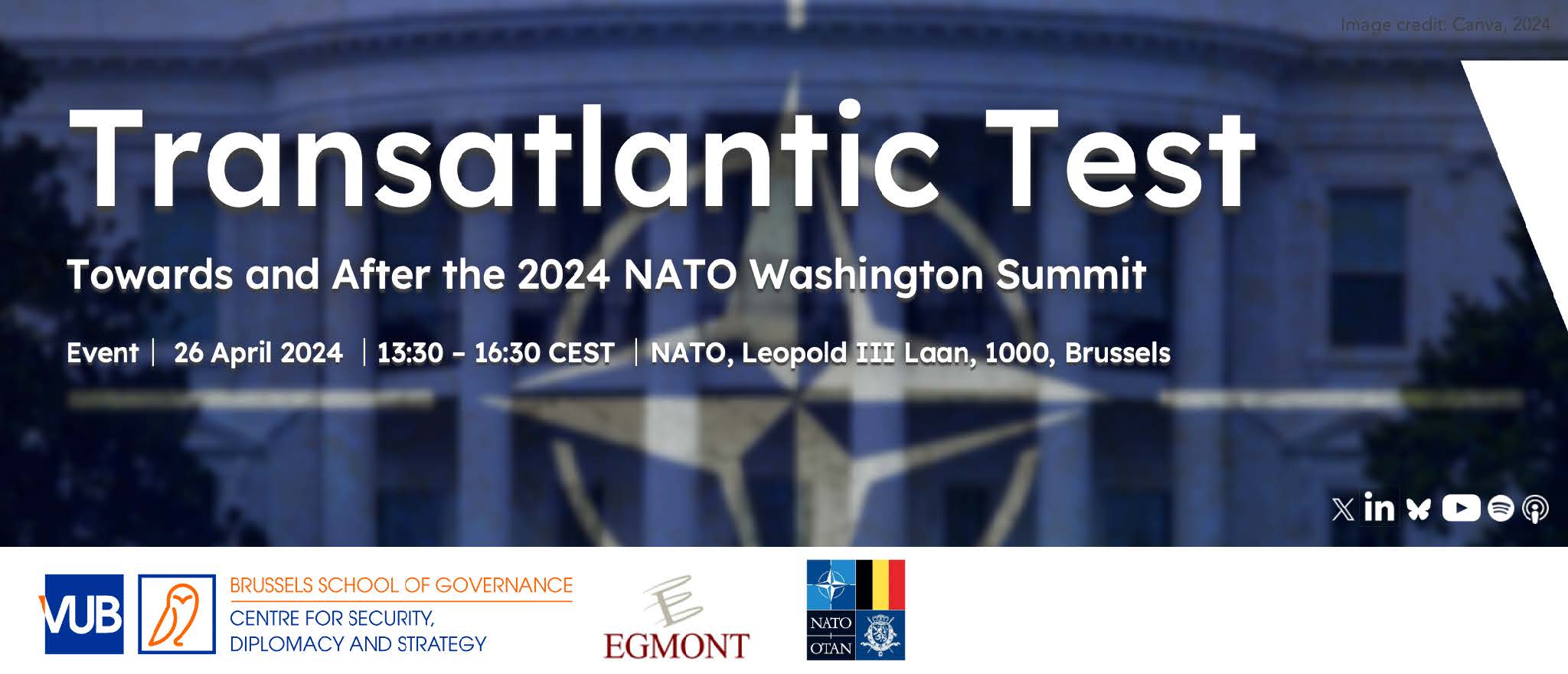Transatlantic Test: Towards and after the 2024 NATO Washington Summit

Date
26 April 2024
Time
13:00-16:30
Type of Event
NATO event
Organisation
NATO, The VUB, the Egmont Institute and the Brussels School of Governance
The 2024 Washington Summit comes at a crucial time for NATO. Positive momentum has been generated by NATO’s Strategic Concept and the Madrid and Vilnius Summits. Undoubtedly, NATO has taken a bold and decisive step towards its core tasks of deterrence and collective defence. However, in addition to celebrating 75 years of NATO, the Washington Summit will need to grapple with major challenges such as the adequate resourcing of the Regional Plans that were approved in Vilnius and the continuation of vital military and financial support for Ukraine in its defence against Russian military aggression. Furthermore, in addition to crises in the Middle East and China’s rise in the Indo-Pacific, NATO Allies need to reflect on what more can be done to effectively manage burden-sharing, develop capabilities and build-up the defence industry across the Alliance.
With potential political turbulence that could emerge within the Alliance in the coming year, the Washington Summit is an ideal moment to ensure the future cohesion and strength of the Alliance. To inform the forthcoming Summit, on 26 April 2024 the Centre for Security, Diplomacy and Strategy (CSDS) and the Egmont – Royal Institute for International Relations are organising a public event in Brussels to reflect on the Washington Summit and 75 years of NATO. Looking ahead to the Washington Summit, the organisers seek to address the following sets of questions:
1) How has burden-sharing in the Alliance evolved since Russia’s illegal invasion of Ukraine? In the context of shifts in the United States’ strategy, how can European Allies ensure that burden-sharing is put on a robust and long-term footing after the Washington Summit?
2) What are the defence-industrial challenges facing the Alliance today and how can they be resolved? How should defence industries across the transatlantic adapt to the return of high intensity warfare? What support can NATO offer Allies in this regard?
PROGRAMME
13:00 – 13:30 REGISTRATION
13:30 – 13:40 WELCOME REMARKS
Alexander Mattelaer, Senior Research Fellow, Egmont – Royal Institute for International Relations
Daniel Fiott, Professor, Centre for Security, Diplomacy and Strategy – VUB
13:40 – 14:00 KEYNOTE ADDRESs
Javier Colomina; Deputy Assistant Secretary General for Political Affairs and Security Policy, NATO
14:00 – 15:00 PANEL I – GETTING THE BALANCE RIGHT: BURDEN-SHARING IN THE ALLIANCE
Moderator:
Alexander Mattelaer, Senior Research Fellow, Egmont – Royal Institute for International Relations
Speakers:
Benedetta Berti, Head of Policy Planning, Office of the Secretary-General, NATO
Lotje Boswinkel, Researcher, Centre for Security, Diplomacy and Strategy – VUB
Joel Linnainmaki, Research Fellow, Finnish Institute of International Affairs
Jörg See, Deputy Assistant Secretary-General for Defence Policy and Planning, NATO
15:00 – 15:15 BREAK
15:15 – 16:15 PANEL II – PRODUCTION POWER: THE ALLIANCE AND THE DEFENCE INDUSTRY
Moderator
Alexander Mattelaer, Senior Research Fellow, Egmont – Royal Institute for International Relations
Speakers
Daniel Fiott, Professor, Centre for Security, Diplomacy and Strategy – VUB
Rudy Priem, Honorary Chair, AmCham EU’s Security, Defence & Space Committee (SDC) and Honorary Chair, NATO Industrial Advisroy Group (NIAG)
Vassilis Theodosopoulos, Manager Defence and Security, ASD Europe
Holger Ziegler, Section Head, Capability Delivery Section, NATO
16:15 – 16:30 CLOSING REMARKS
Ariadne Petridis, Ambassador, Permanent Representative of Belgium to NATO
16:30 END